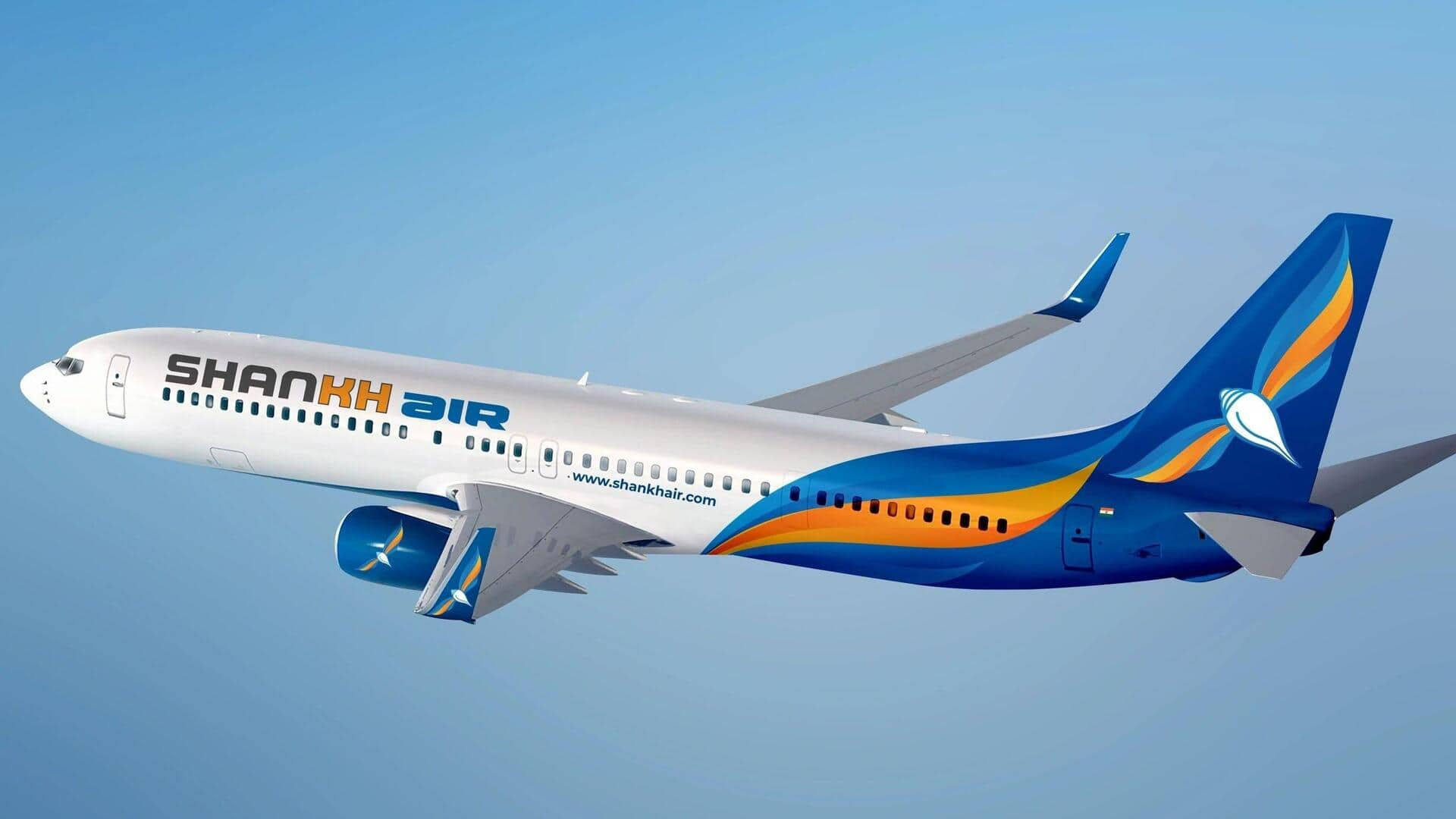
India welcomes new airline as Shankh Air gets government approval
What's the story
Shankh Air, India's newest airline, has been granted approval by the Civil Aviation Ministry to commence operations.
This marks a significant step in the airline's journey toward launching its services.
However, before it can officially start flights, it still needs clearance from the Directorate General of Civil Aviation (DGCA).
Shankh Air is set to be Uttar Pradesh's first scheduled airline with hubs in Lucknow and Noida.
Operational goals
Shankh Air's mission and regulatory compliance
Shankh Air aims to connect major Indian cities, offering both interstate and intrastate routes.
The airline will focus on areas with high demand but limited direct flight options.
As part of its approval, the aviation ministry has instructed Shankh Air to comply with relevant regulations related to Foreign Direct Investment (FDI), Securities and Exchange Board of India (SEBI), among others.
The No Objection Certificate (NOC) granted for operations is valid for three years.
Market influence
Shankh Air's potential impact on regional connectivity
The launch of Shankh Air could significantly improve connectivity in regions currently underserved by air travel, thereby enhancing regional mobility across India.
This development comes at a time when Indian airlines are projected to serve nearly half of the country's international air passenger traffic by FY2027-28.
The increase in market share is expected to be driven by additional aircraft deployment and new route introductions in the international segment.
Growth forecast
Indian airlines' market share and profitability prospects
CRISIL Ratings predicts that the share of Indian airlines in international passenger traffic will surge by 700 basis points to around 50% by FY2027-28, up from 43% in the previous fiscal.
This growth is attributed to their superior domestic connectivity compared with foreign carriers.
The report also suggests that as a result of their increasing share in more profitable international traffic, business profiles of Indian carriers are set to strengthen.
Travel trends
Post-pandemic shift in spending patterns boosts international travel
Post-pandemic, a noticeable shift in spending patterns has been observed with Indians showing an increased inclination toward international leisure travel.
Factors such as rising disposable incomes, easing visa requirements, growing number of airports and enhanced air travel connectivity are contributing to this trend.
"Increasing disposable incomes, easing visa requirements, growing number of airports and enhanced air travel connectivity are boosting international travel," said Manish Gupta from CRISIL Ratings.